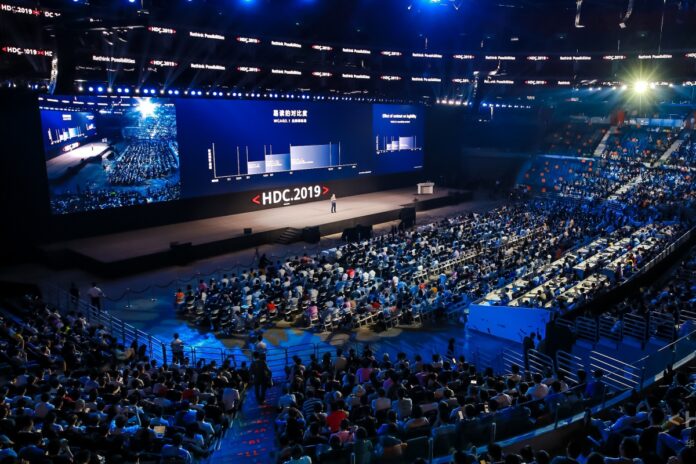Wang Yam sent committee warnings about the downside of involvement with Chinese infrastructure vendor
A Chinese informant for British spy agency MI6 fed intelligence on comms system maker and infrastructure vendor Huawei to the UK parliamentary intelligence and security committee (ISC), The Guardian has reported. Senior Conservative backbencher Dr Julian Lewis said Yam raised “several important areas of concern” and that the committee’s findings may be “of interest” to him.
Is Guto Harri a Huawei Henry?
Chinese infiltration into British politics is rife and recently it was revealed that Guto Harri, the UK prime minister’s new communications director, has lobbied a former chief of staff at Downing Street not to ban the Chinese company. Yam was found guilty in 2009 of the murder of the author Alan Chappelow but has consistently protested his innocence. Last year he sent the ISC documents claiming he had knowledge of how Huawei’s plans would put the UK’s 5G infrastructure at risk. Yam, a grandson of Chairman Mao Zedong’s third-in-command, was a research assistant in the Chinese nuclear weapons research institute. He fled China via Hong Kong and was granted refugee status in Britain in 1992. It is accepted that he was an MI6 informant.
It’s my way, or the Huawei
Lewis told the Guardian that the committee “noted the policy issues raised by Mr Yam: the ISC is currently conducting an inquiry into the national security threat posed by China”. Yam also told the Guardian that his correspondence with the “relevant authorities” in the US had met with a sympathetic response and an assurance that his points were taken “most seriously.” Yam was recruited as an informant by MI6 after defecting from China and being granted refugee status in the UK in 1992. He was assigned to making contacts with Chinese embassy staff, he has claimed.
Does Huawei invest in African people?
Meanwhile the South African Department of Labor (SADL) is suing the local unit of Chinese tech giant Huawei for hiring too many foreign workers, reports South African news site SupChina. South Africa is suffering its highest levels of unemployment since the end of apartheid. Authorities allege that Huawei’s SA workforce is 90 per cent foreign, confounding national regulations that require foreign companies to employ at least 40 per local workers, according to Bloomberg reports.
Does recruitment discriminate?
All five of Huawei SA’s most senior executives are foreign nationals, as are 27 out of 71 of its top managers, the government reports. The move has increased scrutiny over the employment practices of Chinese firms in Africa which, reports The Washington Post, has been criticised for preferring Chinese workers over local employees. “We intend to go to other foreign-owned companies in the country, so that it does not look like we are targeting one company,” said Fix Bede, a chief director in the Labor Department, according to the China Africa Project (CAP).
If the CAP fits
SupChina questions if scrutiny of Chinese firms is justified. “A recent study from the School of Oriental and African Studies reports that negative stories about Chinese companies are mostly untrue,” writes Eric Olander, co-founder of the China Africa Project (CAP), which claims to be an independent, non-partisan media initiative dedicated to exploring every facet of China’s engagement in Africa. “Broadly speaking, Chinese firms employ just as many local workers as non-Chinese companies, and have similar pay and training standards,” says Olander. The number of Chinese workers in Africa has gradually declined since its peak in 2015, with a 43 per cent drop between 2019 and 2020, largely due to the pandemic.


